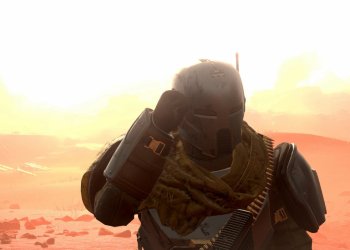After their recent Corporate Management Policy Briefing, Nintendo took to Twitter to assure fans that games for the Nintendo Switch will continue to be playable on its next console, often referred to as the Switch 2.
The briefing, which you can delve into on Nintendo’s website, offers a comprehensive look at Nintendo’s foothold in the console hardware market. The company boasts an impressive 146 million units sold in the Switch family. They also revealed that more software has found its way into players’ hands through the Switch than any other Nintendo console. This detailed 59-page document also outlines that the current Nintendo Switch Online service, along with other features, will remain available when the Switch 2 makes its debut.
Now, if you’re on the Sony or Microsoft side of the gaming world, you might find this news relatively predictable. Microsoft’s Xbox has a strong track record of maintaining backward compatibility, offering features like FPS Boost and Resolution Boosting for older Xbox titles on newer consoles like the Xbox One and Xbox Series S/X. Meanwhile, although PlayStation took a different path post-PS3, the PS5 does a solid job supporting PS4 games, with some PS2 and PS1 titles available through emulation. However, those longing to play PS3 games must rely on cloud streaming via PS4 or PS5, which hasn’t thrilled everyone in the PlayStation community.
Historically, Nintendo has also done well with backward compatibility until the Switch era. The Wii U, which came before the Switch, could play games from the Wii and the GameCube and offered a Virtual Console that filled in many of the past library gaps. The 3DS was capable of playing Nintendo DS titles, although it didn’t support older handheld games like those from the Game Boy Advance era.
But then the Nintendo Switch emerged, combining the company’s handheld and home console lines while shifting from PowerPC to Arm CPU cores, and with it, backward compatibility was scrapped. Fortunately, the Switch’s Nvidia-powered mobile hardware has done wonders for Nintendo, allowing them to stick with this setup. This means gamers buying Switch games now won’t have to worry about a library loss when the Switch 2 rolls around.
This commitment to backward compatibility is potentially good news for fans of games that were limited by the original hardware, such as “Legend of Zelda: Tears of the Kingdom,” which could finally be experienced at smooth frame rates without resorting to emulation software. Nintendo is quite intent on curbing those, probably because if tools like Dolphin can emulate GameCube and Wii, there’s a good chance they’ll handle Switch 2 too.








![[Title Rewrite] [Winners Announced for Free Game Giveaway] Sorry We’re Closed (Switch + PS5)](https://www.gameria.net/wp-content/uploads/2025/04/Title-Rewrite-Winners-Announced-for-Free-Game-Giveaway-Sorry-Were-360x180.jpg)
































